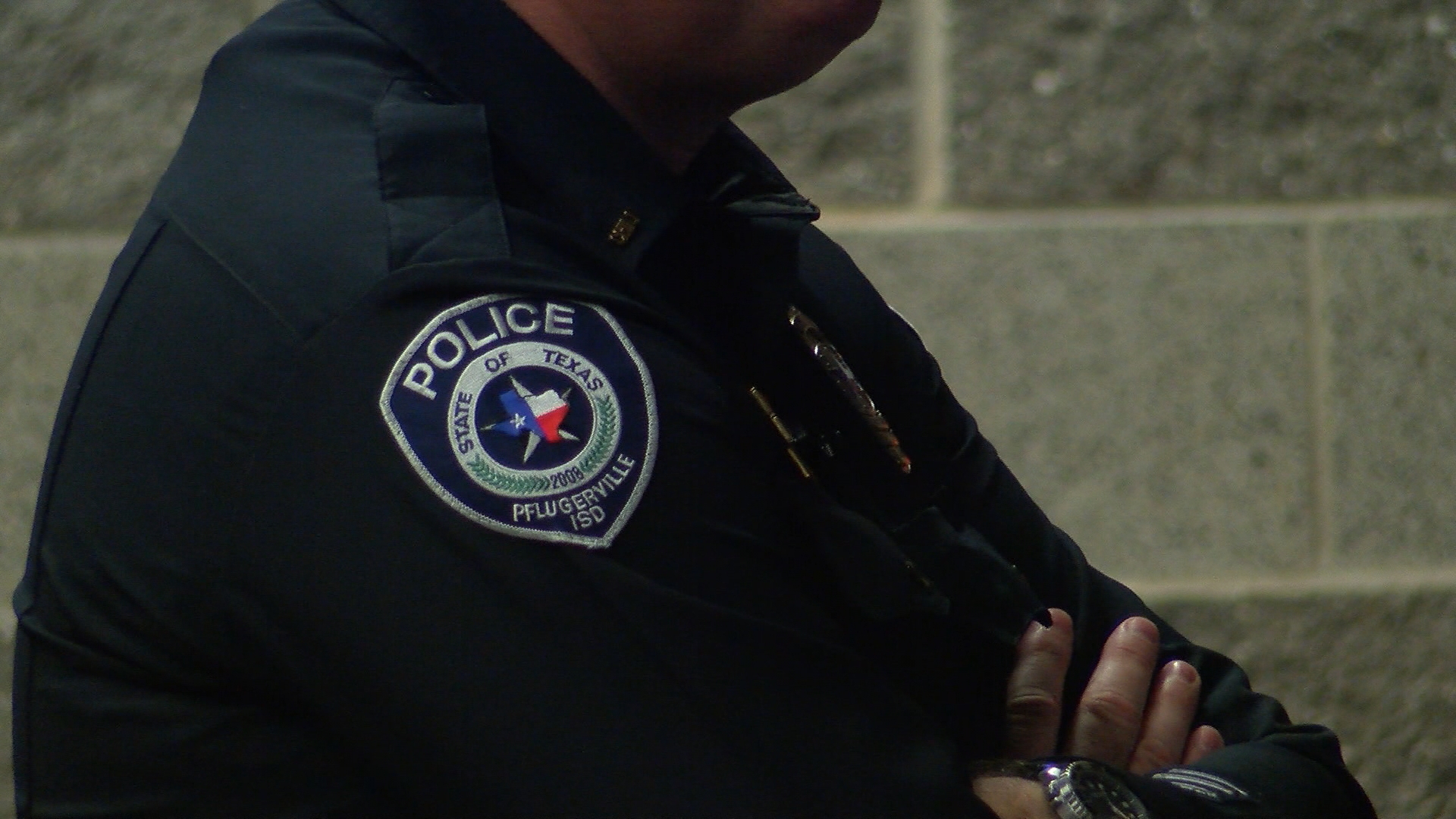PFLUGERVILLE, Texas (Nexstar) — The FBI and Department of Homeland Security participated in safety and security training for Texas school resource officers, administrators and mental health counselors on Wednesday as part of a continued effort to make schools safer statewide.
The event, which featured presenters from the regional, state and federal level, aimed at emergency response to threats, as well as shifting the discussion towards prevention of future attacks.
“We started brainstorming what resources were out there,” Kharley Bagley Smith said of the safety plan she helped create in Hays County back in 2013 in her role as emergency management coordinator.
Austin Police Chief Brian Manley delivered an address highlighting the work of the Austin Regional Intelligence Center, which he said has successfully stopped threats in the Central Texas region.
“It’s unfortunate the reason why we’re here today and the necessity that we be here today,” Manley explained.
“It’s important that we hold meetings and sessions like this today to educate our partners in keeping our schools safe and that is the school resource officers, the school administrators and teachers. All of those individuals that can play a vital partnership with us in keeping our schools safe,” Manley told reporters after his presentation.
Portions of the event were closed to reporters and cameras so as not to release certain confidential information to anyone who might try to cause harm in schools.
Officials said they felt a series of sessions like the one held Wednesday at Hendrickson High School in Pflugerville were important in light of deadly school shootings in Santa Fe, Texas, and Parkland, Florida.
“I think any parent or teacher has some anxiety going into the school year,” Congressman Michael McCaul, R-Austin, said. He gave remarks at the event, emphasizing a need to harden schools that have become “soft targets,” provide mental health resources to students and identify early-warning signs that may indicate violence down the road.
“Whether it be Santa Fe to Columbine to Parkland, there’s always some mental health issue and flags that went up, warning signs that went up that were not identified in advance,” McCaul told reporters. “Identifying those signs and those flags in advance is the best way to stop this from happening.”
The congressman also said he and his colleagues were working to pass more legislation like the Securing Our Schools Act which would require more federal involvement in school safety and security funding, and the Fix NICS Act, championed by Texas Republican Sen. John Cornyn and signed by President Donald Trump in March, which strengthen’s the government’s background check system.
Austin police said partnering with other regional agencies help connect the dots by sharing resources and training practices, with a goal to prevent future attacks.
“What we’ve found over the last few years is that law enforcement has done a really good job of training, as far as the response goes,” Austin Police Lt. Matt Greer, who serves as director of the Austin Regional Intelligence Center, said. “What we’d like to shift to is the prevention side. And that’s what we’re focusing on today is how to recognize behavior that may be indicative of some sort of violence.”
Smith summed up the need for inter-agency communication at all levels of planning.
“You can’t just rely on the school to write these emergency plans, and then have some connectivity back to Public Safety,” she said. “Public Safety can’t write the plans within a silo and expect the school district to understand the language and the lingo and the tactical response within the plan.”
“It has to be a collaboration,” Smith added.




























